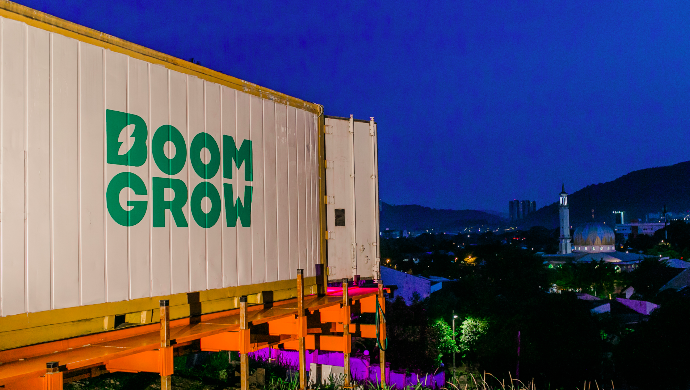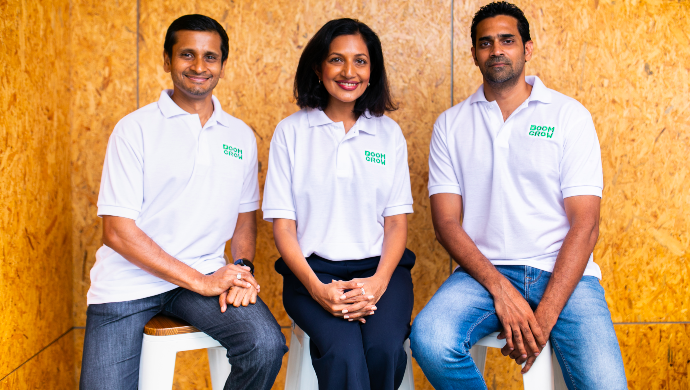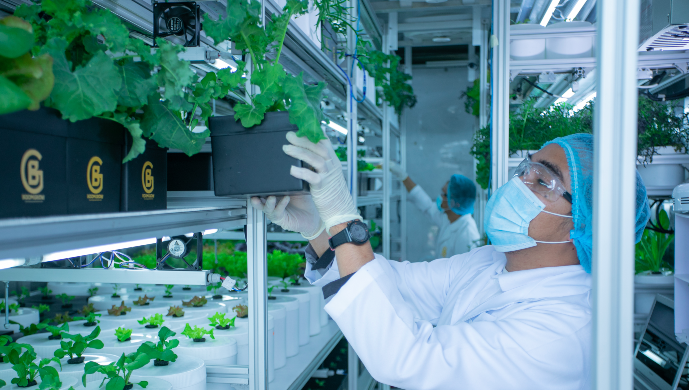
Jay Desan spent 20 years doing sustainability advisory for various organisations, including fortune 500 companies. In those years, Desan saw first-hand how broken the food system around the world was.
“Although we talk about progress in terms of food sustainability and we feel like we live sustainably, in reality, we don’t,” Desan, a PhD from Queens Mary, University of London, told e27. “We don’t know what kind of food we eat, where it comes from, or whether it contains harmful chemicals because we can’t see the supply chain.”
It was time to make a change and provide people with clean and fresh food, she thought to herself.
Also Read: Why agritech startups will call for the next e-commerce revolution
“My husband K Murali and I looked for clean produce for our kids but realised that it was so expensive and that fresh produce was almost unattainable in Kuala Lumpur,” shared Desan. “While we saw a lot of imported produce, we had a hard time getting affordable, clean and fresh produce locally. So Murali and I founded BoomGrow with our close friend Shan Palani.”
Established in 2015, Kuala Lumpur-headquartered BoomGrow is an indoor farming company operating in the vertical farming and precision farming space.
It grows fresh, clean, hyperlocal produce such as butterhead, romaine, kale, Swiss chard, basil, and mint. These are otherwise imported from cold countries.
“We grow the produce all through the year in high-tech indoor spaces called ‘machine farms’. We grow without soil or harmful chemicals with a mineral nutrient solution which the plants soak up through their root systems,” Desan explained.
The machine farms
The machine farms are repurposed shipping containers (see the pic), which are about 320 square feet in size. Their yield, according to her, is equivalent to a one-acre external farm, as these containers can grow items vertically stacked.
The entire operations are on-site in a complete cleanroom setup — from seed transplant to harvesting and packing. Through its automated systems, it ensures that temperature, humidity and light levels are exactly the right balance.

(L-R) BoomGrow co-founders K Murali, Jay Desan and Shan Palani
BoomGrow operates on both a B2C and B2B models.
Subscription model
Users can order products directly from the farms. They can alternatively go for BoomGrow’s subscription plans. This way, fresh produce will be delivered at the consumers’ doorsteps once every two weeks or once a month.
Also Read: Fertile ground for partnership: How agritech boom in SEA holds a promise for Latin America
Consumers can visit BoomGrow’s site, place their orders, and then BoomGrow delivers the produce from the farm that’s closest to them.
“This has been popular, especially during the pandemic as people didn’t want to leave their houses unnecessarily. The pandemic also made consumers more conscious about their health and the importance of consuming fresh and chemical-free produce,” she remarked.
Desan further stated that the hyperlocal aspect of the business is very important for the company and therefore, it only supplies the produce to customers living nearby.
The farms are located in Kuala Lumpur and Langkawi, and the agritech firm is currently building a large in-premises farm in Klang Valley.
As for the B2B side of the business, BoomGrow caters to hotels and restaurants. It has several B2B clients in Kuala Lumpur and Langkawi.
In Southeast Asia, people are increasingly aware of the importance of organic products and their health benefits. And entrepreneurs are jumping on this opportunity. As a result, the region saw the mushrooming of many online and offline organic produce producers.
Malaysia is also realising the benefits of pesticides-free products.
“Most people living in an urbanised, industrialised society believe that food needs to come from really far away. Many of the items we consume daily, such as leafy vegetables, take at least three to four days to arrive,” she mentioned.
But if you start reimagining, she went on, you can ask yourself why that needs to happen, and why can’t the farm be in the city? So that pushes that question of how we can ensure hyperlocal food production, and that’s the opportunity here.
Also Read: Need of the hour: How agritech platforms can protect farmers from climate change
“When food production is situated very far away, we need to then use preservatives to ensure they survive shipment. So these are the things that we want to shift in terms of fresh, clean, nutritious greens in the community, in addition to cutting the carbon miles- food miles is something we’re very passionate about,” she elaborated.
Currently, BoomGrow is focused only on the Malaysian market, although it is seeing demand coming from other parts of the region.

Funding and grants
In terms of funding, the agritech company has so far received over RM1 million (US$240,000) from SME Corp, PlaTCOM Ventures as well as MDEC.
It also benefitted from being part of MaGIC’s Global Accelerator Programme.
These grants enabled the company to take a deep dive into its research and commercialise its prototype Machine Farm.
In January 2021, BoomGrow closed an angel funding round.
“We are now planning to raise our Series A funding within this year to set up more machine farms throughout Malaysia and beyond. We will be looking to drive further innovation in our product offering as well as make some key hires,” Desan concluded.
—
Image Credit: BoomGrow
The post BoomGrow has converted old containers to ‘machine farms’ to grow pesticide-free vegetables in Malaysia appeared first on e27.

